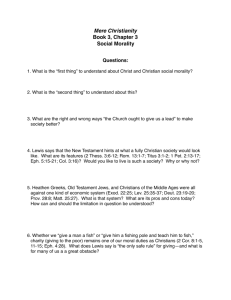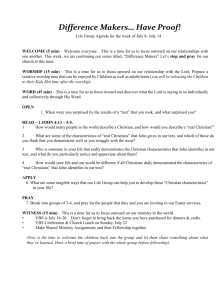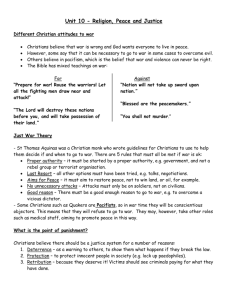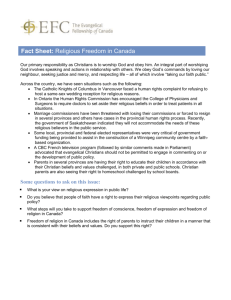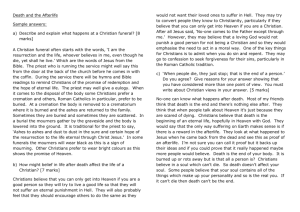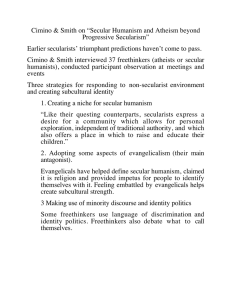This paper explores the concept of mission as 'whole life' for the
advertisement
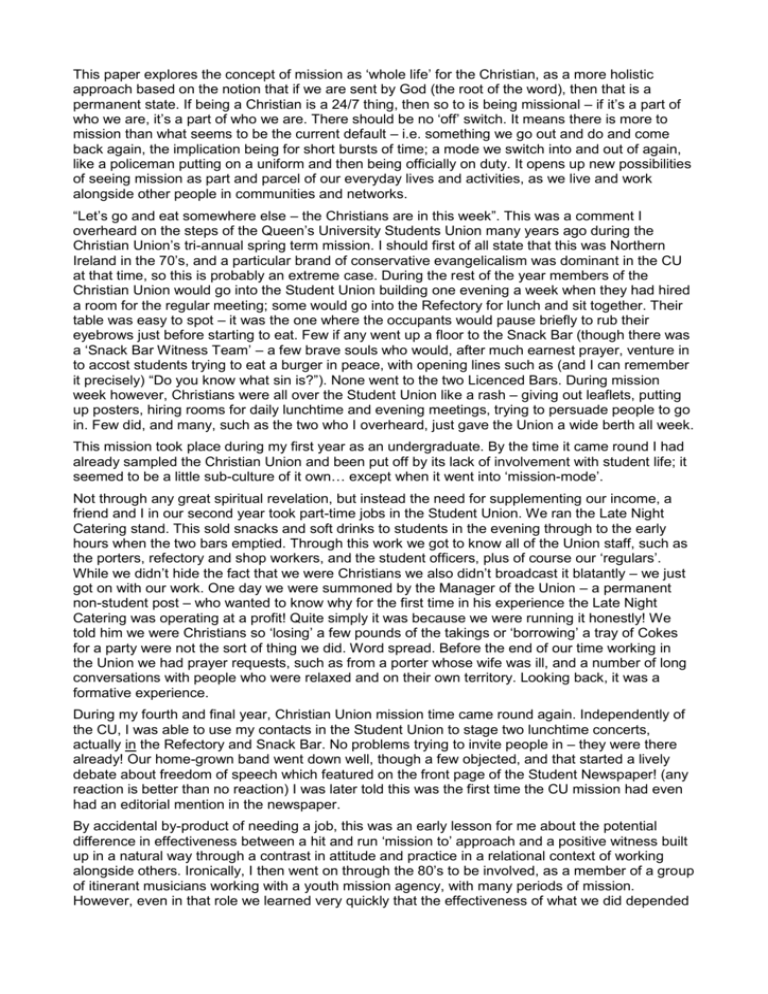
This paper explores the concept of mission as ‘whole life’ for the Christian, as a more holistic approach based on the notion that if we are sent by God (the root of the word), then that is a permanent state. If being a Christian is a 24/7 thing, then so to is being missional – if it’s a part of who we are, it’s a part of who we are. There should be no ‘off’ switch. It means there is more to mission than what seems to be the current default – i.e. something we go out and do and come back again, the implication being for short bursts of time; a mode we switch into and out of again, like a policeman putting on a uniform and then being officially on duty. It opens up new possibilities of seeing mission as part and parcel of our everyday lives and activities, as we live and work alongside other people in communities and networks. “Let’s go and eat somewhere else – the Christians are in this week”. This was a comment I overheard on the steps of the Queen’s University Students Union many years ago during the Christian Union’s tri-annual spring term mission. I should first of all state that this was Northern Ireland in the 70’s, and a particular brand of conservative evangelicalism was dominant in the CU at that time, so this is probably an extreme case. During the rest of the year members of the Christian Union would go into the Student Union building one evening a week when they had hired a room for the regular meeting; some would go into the Refectory for lunch and sit together. Their table was easy to spot – it was the one where the occupants would pause briefly to rub their eyebrows just before starting to eat. Few if any went up a floor to the Snack Bar (though there was a ‘Snack Bar Witness Team’ – a few brave souls who would, after much earnest prayer, venture in to accost students trying to eat a burger in peace, with opening lines such as (and I can remember it precisely) “Do you know what sin is?”). None went to the two Licenced Bars. During mission week however, Christians were all over the Student Union like a rash – giving out leaflets, putting up posters, hiring rooms for daily lunchtime and evening meetings, trying to persuade people to go in. Few did, and many, such as the two who I overheard, just gave the Union a wide berth all week. This mission took place during my first year as an undergraduate. By the time it came round I had already sampled the Christian Union and been put off by its lack of involvement with student life; it seemed to be a little sub-culture of it own… except when it went into ‘mission-mode’. Not through any great spiritual revelation, but instead the need for supplementing our income, a friend and I in our second year took part-time jobs in the Student Union. We ran the Late Night Catering stand. This sold snacks and soft drinks to students in the evening through to the early hours when the two bars emptied. Through this work we got to know all of the Union staff, such as the porters, refectory and shop workers, and the student officers, plus of course our ‘regulars’. While we didn’t hide the fact that we were Christians we also didn’t broadcast it blatantly – we just got on with our work. One day we were summoned by the Manager of the Union – a permanent non-student post – who wanted to know why for the first time in his experience the Late Night Catering was operating at a profit! Quite simply it was because we were running it honestly! We told him we were Christians so ‘losing’ a few pounds of the takings or ‘borrowing’ a tray of Cokes for a party were not the sort of thing we did. Word spread. Before the end of our time working in the Union we had prayer requests, such as from a porter whose wife was ill, and a number of long conversations with people who were relaxed and on their own territory. Looking back, it was a formative experience. During my fourth and final year, Christian Union mission time came round again. Independently of the CU, I was able to use my contacts in the Student Union to stage two lunchtime concerts, actually in the Refectory and Snack Bar. No problems trying to invite people in – they were there already! Our home-grown band went down well, though a few objected, and that started a lively debate about freedom of speech which featured on the front page of the Student Newspaper! (any reaction is better than no reaction) I was later told this was the first time the CU mission had even had an editorial mention in the newspaper. By accidental by-product of needing a job, this was an early lesson for me about the potential difference in effectiveness between a hit and run ‘mission to’ approach and a positive witness built up in a natural way through a contrast in attitude and practice in a relational context of working alongside others. Ironically, I then went on through the 80’s to be involved, as a member of a group of itinerant musicians working with a youth mission agency, with many periods of mission. However, even in that role we learned very quickly that the effectiveness of what we did depended to a large extent on the degree of local on-going missional life-style present in the context we were coming into.
